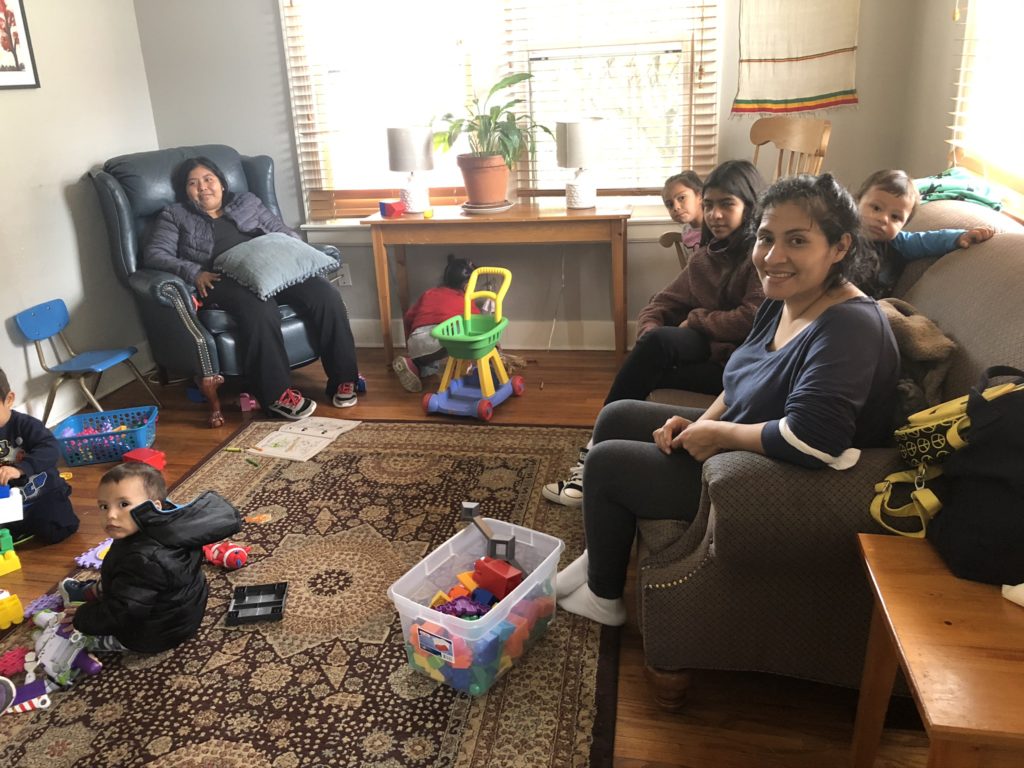We should offer hospitality, not rejection
Estefania Martinez, international fellow, Mennonite Central Committee U.S. Washington Office
Imagine you are very sick. You go to your city’s hospital and the doctor examines you and discovers that you have a disease which your hospital does not have the medicine or equipment to treat. Your life depends on receiving the treatment, so you feel broken and hopeless upon hearing this news.
Then the doctor tells you there is a hospital in a big city far away that could save your life. You leave your home and start the long journey in search of relief. However, once you arrive at the new hospital, you are told that they cannot treat you because you are not from that city. They immediately send you in an ambulance to a hospital in a different small town that is far from your family and that has all the same problems as the hospital back home. You are disappointed, sad, angry and fearful.
Something similar is happening today with what are called “Asylum Cooperative Agreements” that the U.S. government has signed with the governments of Honduras, Guatemala and El SalvadorMigrants who have had to leave their homes, families, friends and country because their lives are at risk due to violence, corruption and other factors, begin a journey to the United States hoping that here they can find the relief they are seeking and the resources to keep them safe.
These migrants arrive at the U.S.-Mexico border and request asylum, a protection granted by a nation to someone who flees his/her home country due to of a fear of violence or persecution. U.S. and international law state that anyone has a right to apply for asylum. But, instead of finding safety, asylum seekers from Central America are told they cannot stay and that they must seek asylum closer to home, in countries where they will likely not find the safety they seek. For example, the U.S. has sent hundreds of Honduran asylum seekers to Guatemala, a country that does not have the structure or capacity to receive them and that struggles with levels of violence, corruption and persecution similar to Honduras.

Families seeking asylum from Honduras, Guatemala and El Salvador stay at Mary and Martha House in San Antonio, Texas, before traveling to host families to await their court hearings. Hundreds of similar families have been deported from the U.S. to Guatemala and forced to seek asylum there. MCC photo/Ron Byler.
In 3 John 1:5-7, John praises Gaius for his hospitality to strangers and encourages him to continue welcoming others in a way that is pleasing to God, thus bearing good witness to the church and showing the love of Christ. At the same time, John condemned the behavior of Diotrephes who rejected God’s people, which was the opposite of hospitality. We are called to show God’s love and not to imitate what is evil (rejection) but to imitate what is good (hospitality). Whoever does good is from God; whoever does evil has not seen God (3 John 1:11).
By implementing dangerous policies like the Asylum Cooperative Agreements, Remain in Mexico and metering, the U.S. has closed its doors to vulnerable people seeking safety. Take action to show hospitality by asking your members of Congress to welcome and protect those seeking asylum in the United States. Urge them to end policies that put asylum seekers in danger and focus instead on creating solutions that address the root causes of migration.
Click here to read more Wider View articles from Mennonite Central Committee.



